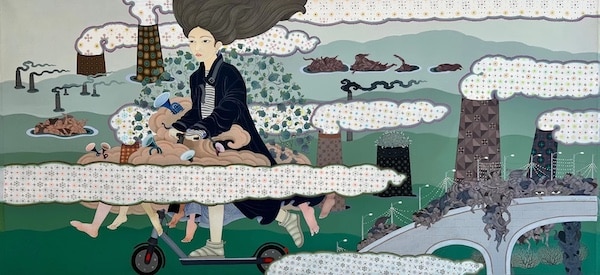Dear friends,
Greetings from the desk of Tricontinental: Institute for Social Research.
In 1919, Winston Churchill wrote, ‘I am strongly in favour of using poisoned gas against uncivilized tribes’. Churchill, grappling at the time with the Kurdish rebellion in northern Iraq as Britain’s secretary of state for war and air, argued that such use of gas ‘would spread a lively terror and yet would leave no serious permanent effects on most of those affected’.
Gas warfare had first been employed by France in August 1914 (during World War I) using tear gas, followed by Germany with the use of chlorine in April 1915 and phosgene (which enters the lungs and causes suffocation) in December 1915. In 1918, the man who developed the use of chlorine and phosgene as weapons, Dr Fritz Haber (1868—1934), won the Nobel Prize in Chemistry. It is a sad fact that Dr Haber also developed the hydrocyanide insecticides Zyklon A and Zyklon B, the latter of which was used to kill six million Jews in the Holocaust—including some of his family members. In 1925, the Geneva Protocol prohibited the ‘use in war of asphyxiating, poisonous, or other gases, and of bacteriological methods of warfare’, disproving Churchill’s claim that such weapons ‘leave no serious permanent effects on most of those affected’. His assessment was nothing more than war propaganda that disregards the lives of peoples such as the ‘uncivilised tribes’ against whom these gases were deployed. As an anonymous Indian soldier wrote in a letter home circa 1915 as he trudged through the mud and gas in Europe’s trenches: ‘Do not think that this is war. This is not war. It is the ending of the world’.
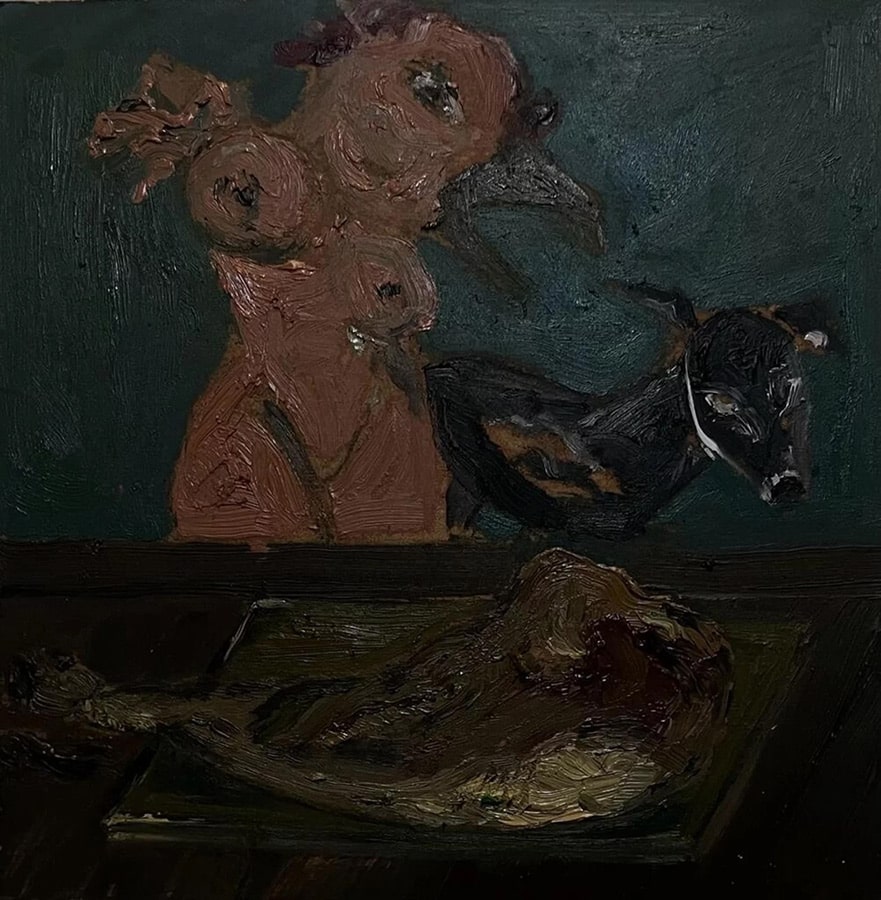
Maitha Abdalla (United Arab Emirates), Between the Floor and the Canopy, 2023.
In the aftermath of the war, Virginia Woolf wrote in her novel Mrs. Dalloway of a former soldier who, overcome by fear, uttered, ‘The world wavered and quivered and threatened to burst into flames’. This sentiment not only holds true of this former soldier’s post-traumatic stress disorder: it is how nearly everyone feels, besieged by fears of a world engulfed in flames and being unable to do anything to prevent it.
Those words resonate today, as NATO’s provocations in Ukraine put the possibility of nuclear winter on the table and the U.S. and Israel commit genocide against the Palestinian people as the world watches in horror. Remembering these words today makes one wonder: can we awake from this century-long nightmare, rub our eyes, and realise that life can go on without war? Such a wonder comes from a fit of hope, not from any real evidence. We are tired of carnage and death. We want a permanent end to war.
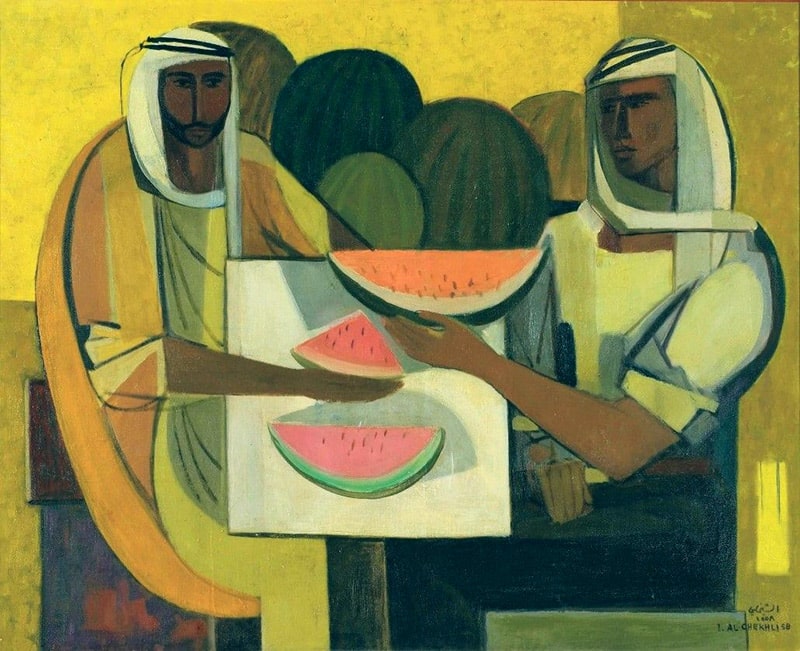
Ismael Al-Sheikhly (Iraq), Ismael Al-Sheikhly (Iraq), Watermelon Sellers, 1958., 1958.
At their sixteenth summit in October, the nine members of BRICS issued the Kazan Declaration, in which they expressed concern about ‘the rise of violence’ and ‘continuing armed conflicts in different parts of the world’. Dialogue, they concluded, is better than war. The tenor of this declaration echoes the 1961 negotiations between John McCloy, arms control advisor to U.S. President John F. Kennedy, and Valerian A. Zorin, Soviet ambassador to the United Nations. The McCloy-Zorin Accords on the Agreed Principles for General and Complete Disarmament made two important points: first, that there should be ‘general and complete disarmament’ and, second, that war should no longer be ‘an instrument for settling international problems’. None of this is on the agenda today, as the Global North, with the U.S. at its helm, breathes fire like an angry dragon, unwilling to negotiate with its adversary in good faith. The arrogance that set in after the Soviet Union collapsed in 1991 remains. At his press conference in Kazan, Russia’s President Vladimir Putin told the BBC’s Steve Rosenberg that the Global North leaders ‘always try to put [the Russians] in our place’ at their meetings and reduce ‘Russia to the status of a second-class state’. It is this attitude of superiority that defines the North’s relations with the South. The world wants peace, and for peace there must be negotiations in good faith and on equal terms.
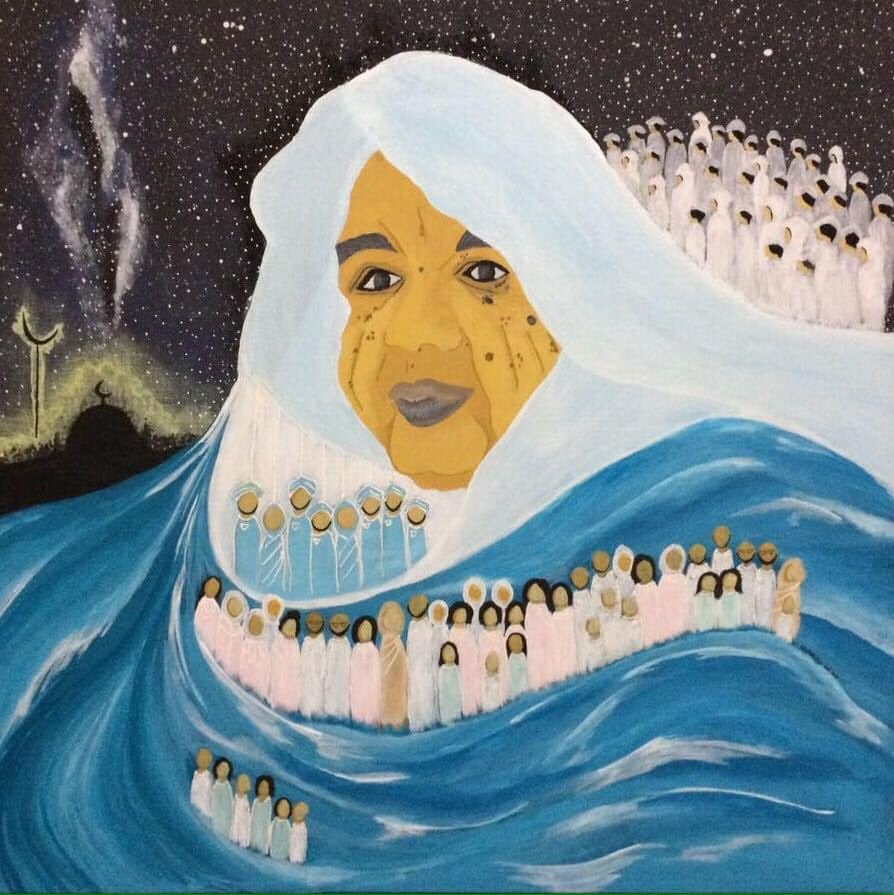
Reem Al Jeally (Sudan), بحر العطاء (The Sea of Giving), 2016.
Peace can be understood in two different ways: as passive peace or as active peace. Passive peace is the peace that exists when there is a relative lack of ongoing warfare, yet countries around the world continue to build up their military arsenals. Military spending now overwhelms the budgets of many countries: even when guns are not fired, they are still being purchased. That is peace of a passive kind.
Active peace is a peace in which the precious wealth of society goes toward ending the dilemmas faced by humanity. An active peace is not just an end to gunfire and military expenditures, but a dramatic increase in social spending to end problems such as poverty, hunger, illiteracy, and despair. Development—in other words, overcoming the social problems that humanity has inherited from the past and reproduces in the present — relies on a condition of active peace. Wealth, which is produced by society, must not deepen the pockets of the rich and fuel the engines of war but fill the bellies of the many.
We want ceasefires, certainly, but we want more than that. We want a world of active peace and development.
We want a world where our grandchildren have to go to a museum to see what a gun looked like.
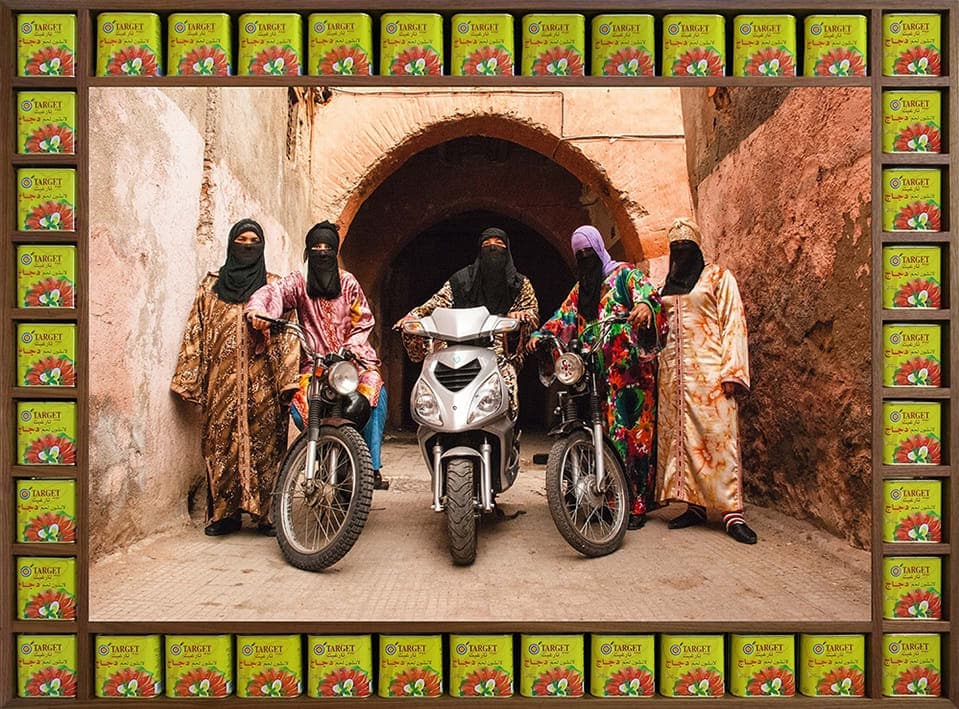
Hassan Hajjaj (Morocco), Henna Angels, 2010.
In 1968, the communist U.S. poet Muriel Rukeyser wrote ‘Poem (I Lived in the First Century of World Wars)’. I often remember the line about newspapers publishing ‘careless stories’ and Rukeyser’s reflections on whether or not we can awaken from our amnesia:
I lived in the first century of world wars.
Most mornings I would be more or less insane,
The newspapers would arrive with their careless stories,
The news would pour out of various devices
Interrupted by attempts to sell products to the unseen.
I would call my friends on other devices;
They would be more or less mad for similar reasons.
Slowly I would get to pen and paper,
Make my poems for others unseen and unborn.
In the day I would be reminded of those men and women,
Brave, setting up signals across vast distances,
Considering a nameless way of living, of almost unimagined values.
As the lights darkened, as the lights of night brightened,
We would try to imagine them, try to find each other,
To construct peace, to make love, to reconcile
Waking with sleeping, ourselves with each other,
Ourselves with ourselves. We would try by any means
To reach the limits of ourselves, to reach beyond ourselves,
To let go the means, to wake.I lived in the first century of these wars.
Can you reach beyond yourself?
Warmly,
Vijay

